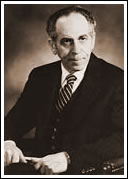THE CITIZENS COMMISSION ON HUMAN RIGHTS

When CCHR began in 1969, it entered a world almost wholly ignorant of the nature, extent and effects of psychiatric practice and control. It was a world in which none of the suffering millions had any voice at all. CCHR became that voice.
CCHR was established by the Church of Scientology as an independent body to investigate and expose psychiatric violations of human rights and to clean up the field of mental healing.
CCHR's co-founder is Dr. Thomas Szasz, Professor of Psychiatry Emeritus and internationally renowned author. CCHR is now an international organization with 133 chapters in 34 countries.
CCHR has brought its message to the doorsteps of national and state legislatures, the United Nations, international councils, patients' rights groups and people and organizations from all walks of life. Its powerful voice is now heard around the world.
CCHR is proud of the reforms it has brought about in its efforts to make human rights a fact. Today, prosecutions of psychiatrists, psychologists and mental health workers are commonplace. Many countries and states have now mandated informed consent for psychiatric treatment, along with the right to legal representation, advocacy, recourse and compensation for patients.
The Commission includes a board of advisors known as Commissioners, which includes doctors, artists, lawyers, educators, and civil and human rights representatives. While CCHR does not provide medical or legal advice, it advocates thorough medical screening to discount physical illness before transferring any individual to psychiatric hands.
Since 1969, CCHR's work has saved the lives of millions and prevented needless suffering for millions more around the world. Its work will only be complete when the beacon of human dignity shines clear in all corners of the globe and psychiatry is held to account for its practices.
For further information, contact:
CCHR International
6616 Sunset Blvd.
Los Angeles, California 90028, USA
323-467-4242
800-869-2247
WHAT OTHERS ARE SAYING ABOUT CCHR
"I ... commend your organization and the individuals involved in assisting me in the criminal prosecution of a psychiatrist ... [CCHR's] efforts were of a superior quality and greatly assisted me.You have some very special people working for you."
Detective Mike Morrison
Newport Beach Police Department, 1991
"I was incredulous to find out that a private organization was following up on leads where we had drawn blanks or were unable to cover. I found all your personnel very positive, eager, intelligent and exceptionally well informed on issues that are obscure to the majority of the population ... I commend you and your staff for the tireless energy and unselfish commitment to solving one of the society's neglected and secret problems: 'experimental psychiatry.'"
Dennis D. Bauer
Senior Deputy District Attorney
Orange County, 1991
"... CCHR is the only organization that is playing hardball against psychiatric fraud and abuse. It was the first to seriously spearhead a movement against it ... I salute CCHR for its incredible persistence..."
Beverly Eakman
Co-founder, U.S. National
Education Consortium,
and Author, 1999
"Most appreciated are the Citizens Commission on Human Rights efforts, through various public forums and media, to inform the public of such critical issues as abusive drugging, electroshock therapy and psychosurgery. The Commission's aggressive social reform activities have also spanned the area of legislation, with the Commission in the forefront of the patient informed consent issue, and in stopping the abuse of involuntary treatment laws."
Bruce Garberding
Director, Washington Protection
and Advocacy System, 1988

